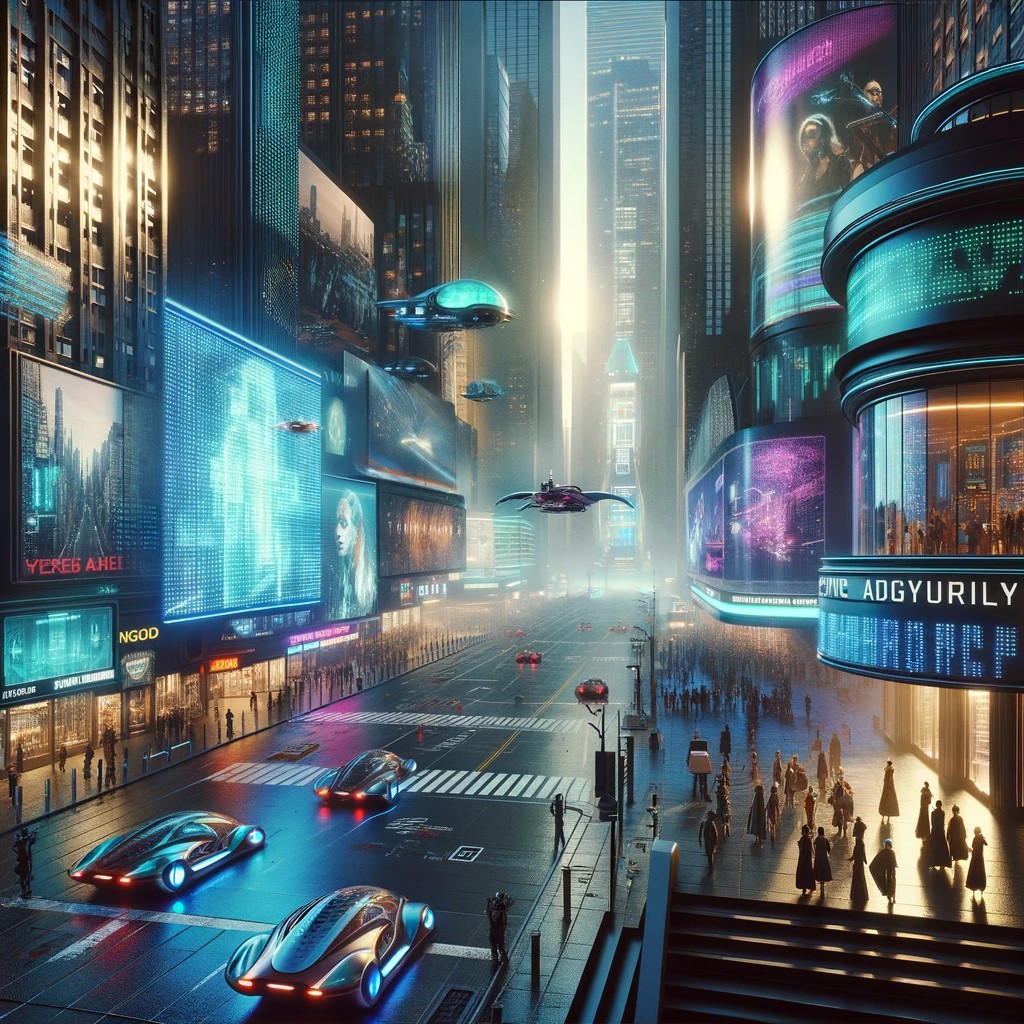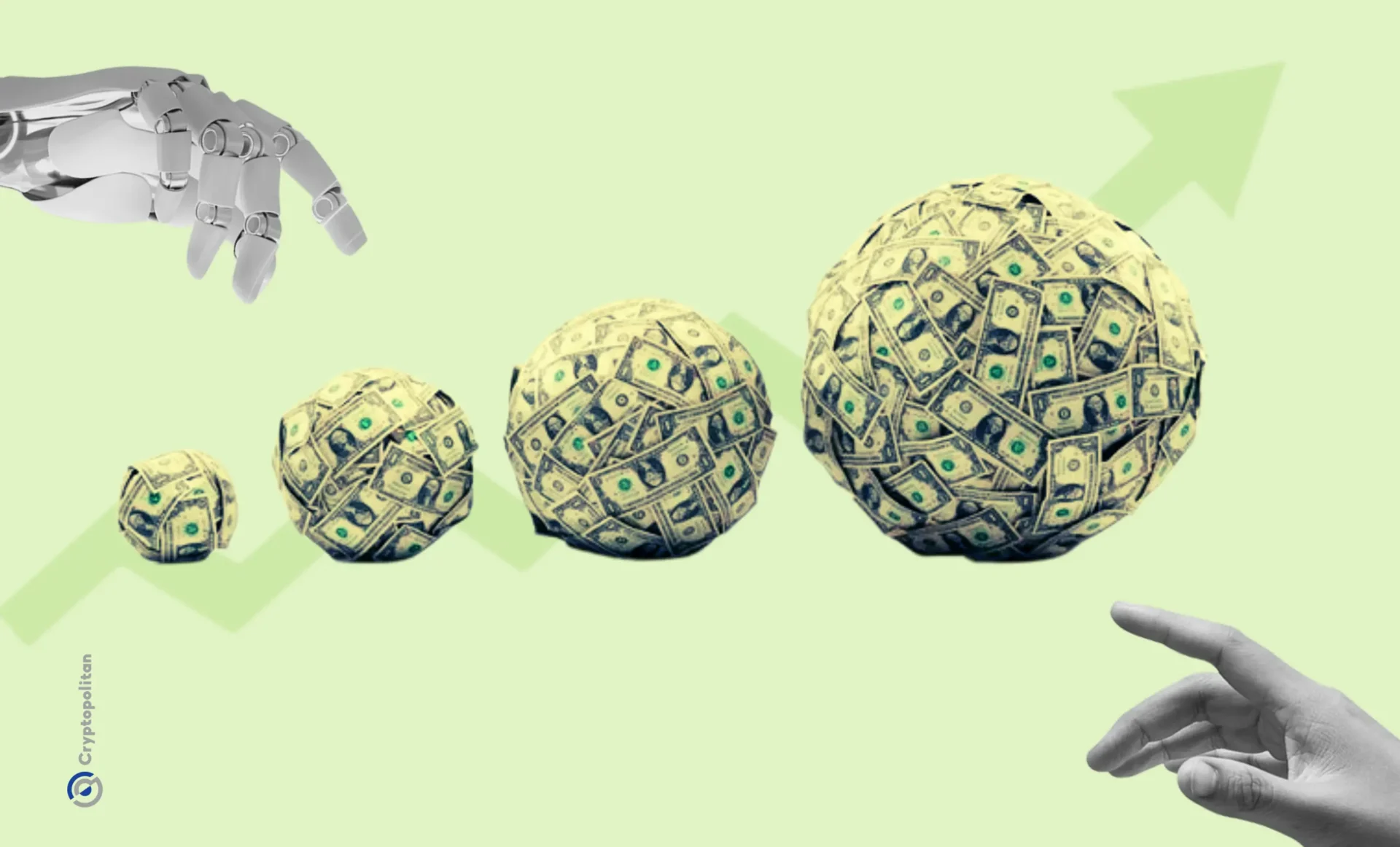In the wake of a year marked by significant strides in artificial intelligence, the landscape of our world is on the verge of a profound transformation. In a recent episode of the Norwegian podcast Game Over?, Professor Morten Goodwin and Associate Professor Per-Arne Andersen unveiled ten bold predictions that foresee how artificial intelligence will reshape our future by 2029. Among these forecasts, the researchers anticipate groundbreaking changes in warfare, entertainment, education, decision-making, work life, coding, healthcare, space exploration, and the eventual advent of AI assistants.
1. AI-powered military advancements spark a new era of rivalry
As the world braces for the future, a new arms race is on the horizon. Over the next five years, powerful nations, including China, the United States, and India, are anticipated to develop increasingly advanced weapons driven by artificial intelligence. Professor Goodwin warns of the potential emergence of highly intelligent drone swarms capable of causing substantial destruction, setting the stage for a relentless competition among nations. Associate Professor Andersen underscores that AI is already playing a role in today’s battlefields, with the prediction that China may gain the upper hand in the military AI race.
2. AI as the creative force in entertainment
Artificial intelligence is poised to take center stage in the entertainment industry. Within five years, it is predicted that AI will not only have the capability to create movies, music, books, and video games but will become the new standard. Professor Goodwin emphasizes the rapid developments in this area and foresees limited power for labor unions, such as those in Hollywood, to resist this transformative change.
3. Shifting tides in education – The end of exams?
The landscape of education is on the brink of a revolution. Lectures and exams may become outdated within five years as artificial intelligence shapes the way knowledge is acquired. According to Professor Goodwin, there is a bold declaration that exams may become obsolete within five years due to the superior capabilities of artificial intelligence in certain tasks. While colleges and universities will persist, the researchers anticipate a shift in their structure and methodologies.
4. AI in decision-making – Shaping the political landscape
The influence of artificial intelligence in decision-making is expanding beyond writing speeches and meeting summaries. Professor Goodwin envisions a future where politicians turn to AI for guidance in crucial decision-making processes, reducing reliance on committees and conflicting expert opinions. The potential integration of AI in decisions ranging from infrastructure projects to healthcare policies could redefine the political landscape.
5. Transformed work dynamics – Meaningful tasks in a changing job market
In five years, the workforce is expected to undergo a significant transformation. While fewer tasks may require human intervention, the jobs that remain will become more meaningful. Professor Goodwin challenges the conventional understanding of work, emphasizing the intertwining of financial needs and the search for meaning in life. Concerns about who benefits from AI-driven automation loom large, with potential for worker frustration and protests.
6. The evolution of no-code software development

Software development, a cornerstone of the tech industry, is predicted to undergo a radical shift. Coding itself is expected to become obsolete, replaced by instructing computer programs to write code on behalf of humans. Professor Goodwin highlights the importance of purchasing competence and understanding desired outcomes in this evolving landscape.
7. AI and health technology
The intersection of AI and healthcare holds promises of breakthroughs in body repair. Tiny robots known as nanorobots, already in use in health research, may gain more AI capabilities by 2029. Predictions include these robots healing damaged muscles and tissues or targeting tumors in the body. Also, anti-aging with AI is expected to gain prominence.
8. The synergy of ai and space exploration
Interplanetary exploration, a daunting task for humans, may become more feasible with the integration of artificial intelligence. Professor Goodwin envisions deploying physical or virtual robots by 2029, with notable figures like Elon Musk leading the charge. The practicality of assigning such endeavors to AI becomes evident as space exploration enters a new era.
9. Advancement in broader artificial intelligence
General artificial intelligence, capable of mastering multiple tasks as humans do, is an elusive goal. While achieving true general AI by 2029 may be unlikely, Professor Andersen anticipates unexpected breakthroughs bringing us closer to this ambitious milestone.
10. AI assistants on the horizon – Anticipating your needs
A paradigm shift is imminent in the realm of digital assistants. Move over Siri and ‘Hey Google.’ Researchers predict the arrival of AI assistants that anticipate users’ needs, whether in mobile phones or physical robots. Smart homes equipped with robot assistants could revolutionize daily routines, preparing a meal the moment hunger strikes.
As artificial intelligence continues its march towards reshaping our world, these predictions offer a glimpse into a future where the boundaries between human capabilities and technological advancements blur. From the battlefield to entertainment, education to decision-making, and beyond, AI is set to revolutionize how we live, work, and explore. The question that lingers is not whether AI will play a central role in our lives, but how we will navigate this transformative journey. Are we prepared for the profound changes that await us, or will the integration of AI into our daily existence spark new challenges and uncertainties? The answers may only unfold as we hurtle towards a future shaped by the inexorable force of artificial intelligence.





